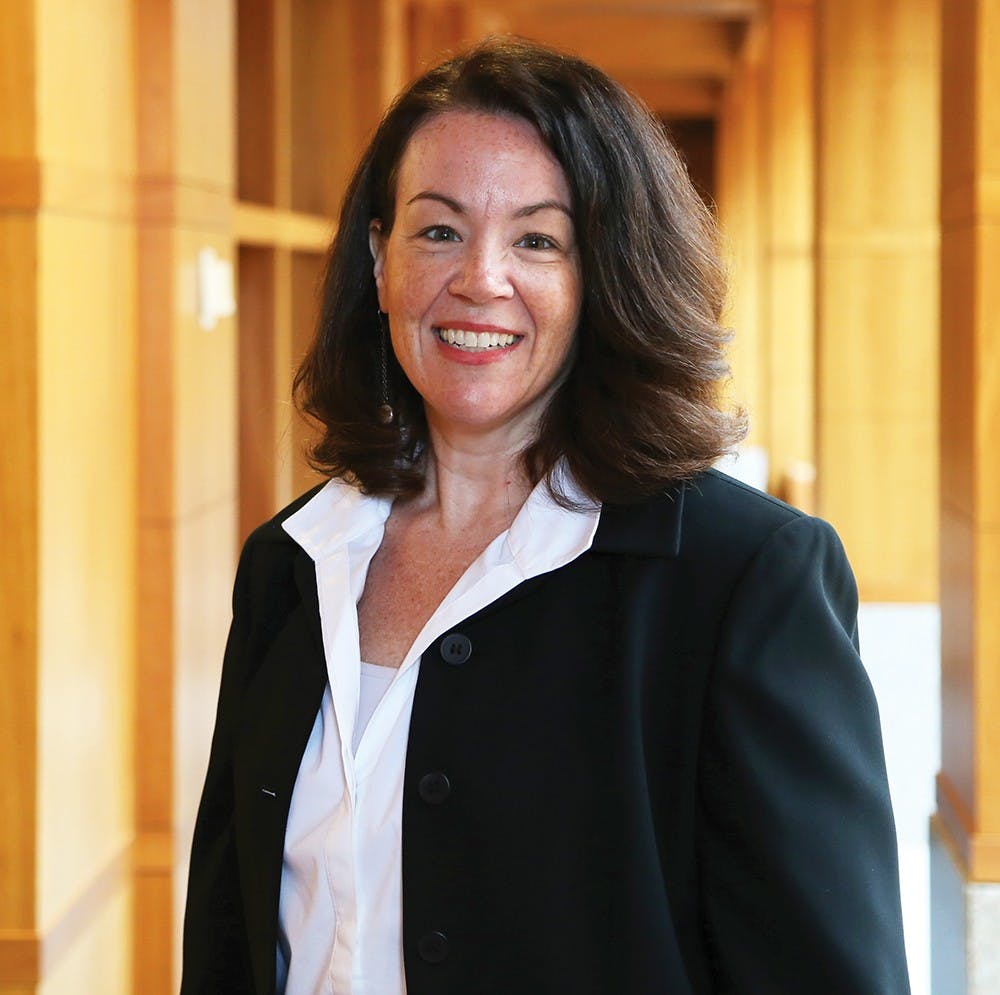A Virginia Beach Circuit Court judge ruled Monday in favor of a request by the Innocence Project at the Law School to allow testing of newly uncovered forensic evidence in the case of Darnell Phillips.
The evidence — believed to have been destroyed since 1995 — may hold the key to overturning Phillip’s conviction and release from prison 25 years after being convicted.
Law Prof. Jennifer Givens, legal director of the Innocence Project clinic and Phillip’s defense counsel, uncovered the evidence in October 2015 along with third-year Law student Anna Stark and second-year Law student Sabrine Tribié.
Phillips was convicted in 1991 of the brutal rape and beating of a 10 year-old girl in Virginia Beach, and subsequently sentenced to 100 years and one day in prison. The new evidence includes untested swabs, clothing and biological evidence from both the victim and Phillips.
Second Judicial Circuit Judge A. Bonwill Shockley presided over the hearing Monday and ordered the evidence to be sent to the Virginia Department of Forensic Science. Wendy Alexander, a prosecutor for the state involved in the case, did not oppose the release of evidence.
A jury convicted Phillips of rape, sodomy, abduction and malicious wounding in June 1991. He was 19 at the time.
The key piece of evidence the Commonwealth presented was hair found on a blanket used to wrap the victim. The Commonwealth presented testimony from a forensic expert who claimed the hair found on the blanket — the only physical evidence connecting Phillips to the crime — belonged to Phillips.
Since then, Phillips has been trying to prove his innocence. The Innocence Project took on his case in 2008, after years of failed appeals and requests for new trials. Further testing of the evidence after his conviction revealed results excluding Phillips.
Though a judge ordered re-testing of all physical evidence, Macie Allen — a spokeswoman for the Commonwealth’s Attorney’s Office — said Virginia Beach Police Department documents showed the evidence seized in the case was destroyed in 1995 once the defendant’s direct appeals were exhausted.
In a letter to the defense in November 2005, the Commonwealth indicated the evidence “not contained in the court’s file” had been destroyed. Evidence admitted during the trial, however, is stored in the court’s file, Allen said.
“Once evidence is admitted at trial, it generally remains in the court’s file and the police department no longer has custody of it,” Allen said in an email statement.
However, Allen said a review of the court’s file would have revealed there were evidentiary exhibits still in existence in the court’s file.
“I believe the defense confused evidence held by the police department with evidence in the court’s file,” Allen said. “The court’s file amply documents the existence of that evidence.”
Phillip’s defense counsel at the Innocence Project could not be reached for comment.







